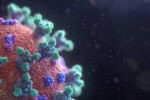Covid-19 and Cardiac Issues
Getting to the Heart of the Matter
Individuals with known cardiovascular disease may be at risk of more severe complications from COVID-19.
By now we are all most likely familiar with the list of possible symptoms brought on by the novel coronavirus, known in medical terms as SARS-CoV-2 or more commonly as Covid-19. These symptoms can include fever, chills, cough, shortness of breath, difficulty breathing, fatigue, muscle or body aches, headache, loss of taste or smell, sore throat, congestion, nausea and/or vomiting. While known primarily as a respiratory virus, Covid-19 can impact our bodies in myriad ways, and even as of this writing, there are still many questions about this virus as to how it affects patients physically, not only in the short term, but for days, weeks, months and possibly even years down the road.
This virus does not necessarily fit the pattern for what is typically expected of a respiratory illness or pneumonia. It can afflict the brain, the eyes, the nose, the gastrointestinal system, the blood, the lungs, the kidneys, the skin, the immune system and even the heart. There have been reports that Covid-19 takes a toll on certain affected individuals in ways not fully understood, raising concerns about long-term damage after people recover, even if their illness was not severe enough to require hospitalization.
According to a study from the American Heart Association, in the United States alone, heart disease stands as the leading cause of death, affecting 121.5 million Americans as of 2016 and causing about one in four deaths. Therefore, it can be asserted a large number of those individuals may become unstable in the presence of infection from the virus. In fact, a study from Germany provides a somewhat distressing view of how Covid-19 can potentially affect the heart. This study, which stands as one of two studies, examined the cardiac MRIs of 100 people, all of whom had recovered from the illness. Those MRIs were then compared to MRIs of heart images from 100 similar individuals who had not been infected with the virus.

The average age of the individuals in this study was 49. Two-thirds of the patients recovered at home. More than two months later, the infected patients were more likely to present with signs of cardiac issues than the people in the control group. Seventy-eight of those patients sustained structural damage to their hearts. Seventy-six of them presented with a biomarker similar to one usually noted after a heart attack. Further, 60 individuals showed signs of inflammation, also known as myocarditis. As 78% of the so-called recovered patients who were otherwise healthy prior to the onset of the illness had suggestions of subsequent heart issues, it does merit a closer look into integrating proactive action for heart involvement via Covid-19 at much earlier stages.
Since the initial days of the virus, it was indicated that individuals with underlying cardiovascular issues such as coronary artery disease, high blood pressure or heart failure were determined to be at greater risk for infection and death than those without such underlying conditions. The JAMA (Journal of the American Medical Association) Cardiology suggests that in many patients, Covid-19 can foretell instances of heart failure, a progressive disease that inhibits the heart’s ability to effectively pump blood throughout the body. At present, cardiologists remain uncertain as to whether this issue is short-lived or permanent. While Covid-19 can target the heart, many patients will most likely get through the acute phase of the illness, but the question about the long-term effects on the heart may still linger.
According to Dr. Leslie Cooper, Chair of the Department of Cardiology at Mayo Clinic, two types of cardiac issues are related to this virus: heart failure and abnormal heart rhythms. These issues can be related to the infection itself or to the medications given to treat the virus. It remains a tricky diagnosis, however, as heart failure can be related to the inflammation of the heart or it could be a response to systemic inflammation from the virus itself.
Dr. Cooper indicated that with older patients already living with pre-existing heart disease or high blood pressure, the heart failure related to the virus can be a result of increased pressure on an already weakened heart. With respect to younger patients, any corresponding heart issues are likely attributed to inflammation caused by the virus. Studies continue to suggest that older adults with coronary heart disease or high blood pressure are more likely to develop more severe symptoms with respect to the virus than their younger counterparts. They may also face an increased risk for complications.
Still, the long-term effects of Covid-19 on the heart are yet to be fully understood and determined. Therefore, doctors recommend that everyone – not just those who have pre-existing heart conditions – continue to focus on good heart health practices: taking care of yourself, exercising, washing hands frequently, eating right and maintaining proper social distancing.
“We are inclined to raise a new and very evident concern that cardiomyopathy and heart failure related to Covid-19 may potentially evolve as the natural history of this infection becomes clearer,” emphasized Clyde Yancy, cardiologist at Northwestern’s Feinberg School of Medicine and Gregg Fonarow, cardiologist at UCLA’s Geffen School of Medicine.
In short, the question still remains as to how long cardiac changes may persist and whether or not these effects will be permanent or if they will gradually improve over time. The science still continues as the understanding of how the heart can be affected by the virus evolves.






